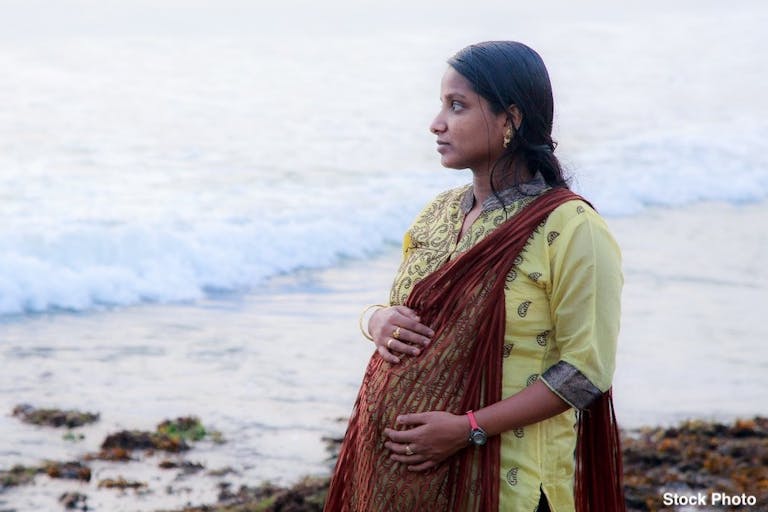
Details shrouded in secrecy as third woman in a month is injured at Rhode Island Planned Parenthood
Bridget Sielicki
·
Early COVID-19 study shows lockdowns in India prevented nearly 2 million abortions
The international pro-abortion group Ipas released a study in June which found that lockdowns and other factors related to COVID had, at that point, already prevented 1.85 million abortions in India.
Ipas is an international organization that promotes abortion worldwide, particularly in Africa, Asia, and Latin America. They train abortionists and push for increased access to abortion, even in countries where abortion is banned.
Ipas’s study covered three months (March 25, 2020 – June 24, 2020). It found that, during this time, 59% of women who wanted abortions in India were unable to get them. Nearly two million abortions that would have otherwise taken place, the study says, were prevented due to COVID restrictions as well as other factors related to the pandemic.
About 15.6 million abortions take place in India annually. The majority (73%) are done through the abortion pill rather than surgical abortion. The abortion pill is typically given through nine weeks. These 73% are accessed outside of medical facilities. With the potentially severe and sometimes fatal complications that occur with the abortion pill, this presents a danger in a country where rural Indians often live far from medical facilities. About 16% of abortions in India take place in private health facilities, with 6% in public health facilities.
READ: Researchers project 7 million missing girls in India by 2030 due to sex-selective abortion
In addition to women being unable to travel to abortion facilities later in pregnancy, the study gave one more reason why restrictions on travel reduced abortion numbers. Abortion still carries a considerable stigma in India, and many women leave their neighborhoods to obtain the abortion pill. These women don’t want to encounter people who know them, so they travel to areas where they are unlikely to encounter neighbors, friends, or acquaintances. The study says:
Due to stigma, women/their partners avoid neighborhood chemist shops and prefer a more distant/less frequented outlet for buying MA [medical abortion] drugs – restriction in transport facilities impact their ability to access the outlet of choice.
A desire to keep their abortions secret, then, prevented some women from killing their preborn babies.
The study gives other reasons why access to abortion was reduced:
Article continues below
Dear Reader,
In 2026, Live Action is heading straight where the battle is fiercest: college campuses.
We have a bold initiative to establish 100 Live Action campus chapters within the next year, and your partnership will make it a success!
Your support today will help train and equip young leaders, bring Live Action’s educational content into academic environments, host on-campus events and debates, and empower students to challenge the pro-abortion status quo with truth and compassion.
Invest in pro-life grassroots outreach and cultural formation with your DOUBLED year-end gift!
Public health facilities are either converted to COVID-19 treatment centers or the facility staff is redeployed from regular duties to COVID-19 care. Moreover, closure of private health facilities due to provider unavailability and lack of protective gear and disruption in supply chain of MA drugs at both chemist outlets and facilities.
From an article in The Economic Times:
The study estimates that access to abortion was highly compromised during lockdown 1 & 2 (March 25 – May 3, 2020) in which around 59% of women seeking an abortion could not access the services. However, with the un-lock phase or the recovery period as mentioned in the study starting on 1St June, the situation is expected to improve – with 33% of abortions being compromised in 24 days.
More recent research will be needed to determine if the estimate of 33% was accurate.
Ipas was hoping some of the 1.85 million women who hadn’t had abortions would still kill their babies. The group was urging hospitals and medical facilities in India to commit more late-term abortions so that these women could still abort. Second-trimester abortion is legal in India, but fewer medical facilities do them.
Sadly, Ipas wants to bring more death into a world that is already seeing hundreds of thousands dying from COVID-19.
Mr. Vinoj Manning, CEO, Ipas Development Foundation, said, “Many of these 1.85 million women will be coming into public and private hospitals seeking second-trimester abortions and we should not be turning them away a second time.”
We can hope that some women, given more time to think about their decision, will choose life.
“Like” Live Action News on Facebook for more pro-life news and commentary!
Live Action News is pro-life news and commentary from a pro-life perspective.
Contact editor@liveaction.org for questions, corrections, or if you are seeking permission to reprint any Live Action News content.
Guest Articles: To submit a guest article to Live Action News, email editor@liveaction.org with an attached Word document of 800-1000 words. Please also attach any photos relevant to your submission if applicable. If your submission is accepted for publication, you will be notified within three weeks. Guest articles are not compensated (see our Open License Agreement). Thank you for your interest in Live Action News!

Bridget Sielicki
·
Analysis
Cassy Cooke
·
Analysis
Cassy Cooke
·
Analysis
Cassy Cooke
·
Analysis
Cassy Cooke
·
Analysis
Nancy Flanders
·
Guest Column
Sarah Terzo
·
Abortion Pill
Sarah Terzo
·
Guest Column
Sarah Terzo
·
Guest Column
Sarah Terzo
·
Guest Column
Sarah Terzo
·